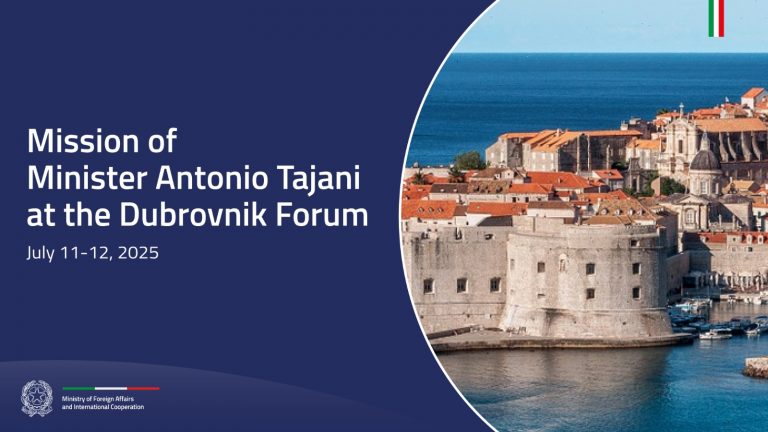(Please check against actual speech delivered)
Ladies and gentlemen, I am delighted to welcome you at the Ministry of Foreign Affairs for this “special edition” of the International Business Advisory Committee.
As I mentioned yesterday evening at Villa Madama, your presence here represents for us a sign of trust to our country. We value this very much, as international trust is an important success indicator for our Government.
Many of you are more experienced than I am with IBAC. And I will let my distinguished co-chair, Sir Martin Sorrell, to go into further details about this year’s edition. But let me just highlight one thing: throughout its decade-long history, this is the first edition ever of the IBAC to be held in partnership with a national Government.
Moreover, this is the first time that the business leaders from countries like China, Japan, Turkey the Middle East and many others are invited alongside the traditional members of IBAC.
You have been doing a great job over the last few years helping global cities, including most recently Rome, in their efforts to plan ahead strategically. This year we thought it could be important to make use of your experience and vision to support us – the Italian Government – in our effort to reform the country.
This is even more relevant as we have just launched a fully-fledged policy specifically aimed at creating a general environment that is friendlier to business and foreign investments.
We did so because we are convinced that Italy has a huge potential, from an economic, cultural, technological point of view. And we are determined to put such potential to the test in the coming years.
– First of all, in 2015 we are going to host the Universal Exposition in Milan.
– Secondly, we are considering a candidature to host the 2024 Olympic Games.
– Moreover, we are implementing a national Digital Agenda that will bridge the digital gap affecting many areas of the country, boosting competitiveness and creating new growth opportunities.
In all these efforts, and in the general effort to re-launch economic growth, we felt that your advice and your commitment could prove highly beneficial. But we did not want to meet you with “empty hands”. That is why today we will kick-start our discussion from the presentation of Destinazione Italia, the Government’s flagship initiative for the attractiveness and competitiveness of the country.
We launched Destinazione Italia six months ago, but we planned to have you here only today: we thought that it was important to show to the global business community that we actually deliver things before announcing them. That we are talking about facts, not just commitments. And in fact today we are going to talk about investing in Italy after the approval, last December, of a first package of measures to make life easier for investors in Italy.
The Government work plan for Destinazione Italia has been tight and the measures adopted are robust and concrete. Alessandro is going in a while to describe the package in detail.
But first, let me say one important think: Destinazione Italia is not merely a law making exercise. It is the way this Government has chosen to deal with globalization and global competition. It is a way to further open the country to the world, in order to seize new opportunities for growth and development.
Since the early days of this Government, the attraction of foreign investments was set as a priority. We did so for two reasons:
– because we are a globalised economy, and we need foreign financial, industrial and human capital to take part to the global value chains.
– And because there is a close relationship between attractiveness and competitiveness of our country. What is needed for encouraging you to invest in Italy is the same that is needed to make Italian firms more competitive, domestically and around the globe.
Dealing with the attraction of foreign investor could prove relatively difficult in Italy from a political point of view. Protectionist approaches based on a wrong definition of national interest are still strong. This is why we had to deal with two different syndromes in our domestic debate:
– On one side, the outlet syndrome: “come here ladies and gentlemen, we are selling out Italy and its beauties!”
– On the opposite side, the Fort Apache syndrome: “we are in a deep crisis, let’s entrench in our country and prevent the world from getting in”.
Well, let me be very clear on this subject: our government is strongly committed in promoting the national interest, but we have a clear idea about what the national interest, and the European interest, really is.
And it is something much more related to encouraging sustainable development and spreading the benefits of economic growth rather than preventing foreign wealth and know-how to come to Italy. As a matter of fact, encouraging foreign investment in Italy is a way to promote our national interest.
And our primary national interest, in these days, is to get our country back on the track of a robust growth. To do so, we need to make Italy run at the same speed of business.
In this field your advice is priceless: we have a lot to tell you about Italy, but it is much more important for us to listen what you think about our country. And to make our country part of your plan for the future!





